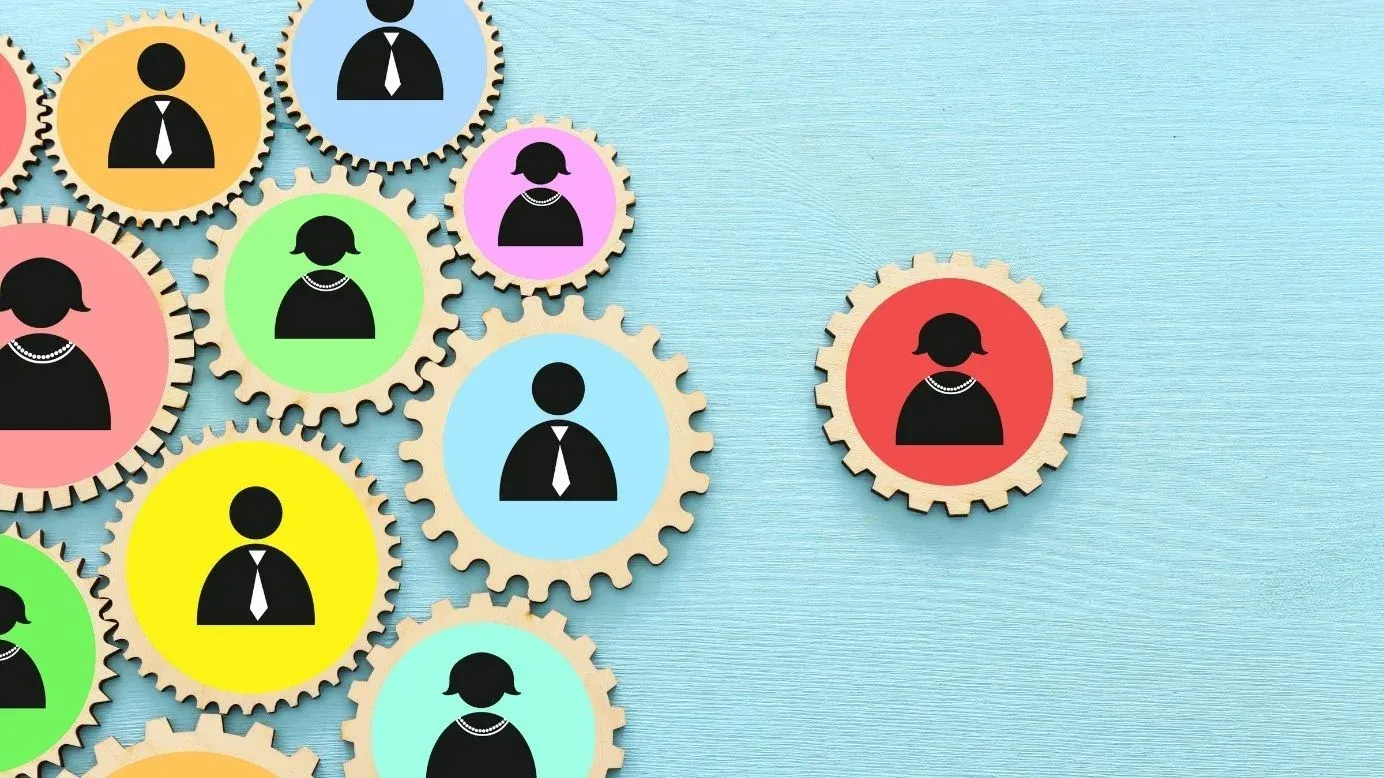في هذه الصفحة
الجميع على دراية بالثقافة التنظيمية ل Google و Apple ، ونحن جميعا مندهشون منها أيضا. ولكن هناك شيء واحد مؤكد هو أنه ليس كل منظمة قادرة على تحمل هذا النوع من الثقافة، أو قد لا يرغب البعض في ذلك. يمين؟
لكن هذه الشركات الست ذات الثقافة التنظيمية الرائعة لا تقل عن Google و Apple.
1. تعمل شركة Adobe Systems على خلق عالم أفضل من خلال وضع موظفيها في القيادة.
2. في Hubspot، يتم بناء الثقافة في Hubspot مثل المنتج - بشق الأنفس وبعناية فائقة.
3. باتانجالي أيورفيد تستفيد من الإلهام الخالد لـ "شفاء" تعريف الثقافة ذاته.
4. تقدم مؤسسة أكشايا باترا ثقافة الطموح غير الأناني.
5. قصة دباوالاس مومباي هي ملحمة ثقافة تقدم - سواء كان ذلك تحت المطر أو تحت أشعة الشمس أو الزلزال.
6. في هيئة الخدمات الصحية الوطنية، المملكة المتحدة، تحافظ ثقافة التعاطف أولاً على كنز وطني مميز وتدفعه إلى الأمام.
6 أمثلة على الشركات ذات الثقافة التنظيمية القوية
تدرك الشركات الرائدة أهمية بناء ثقافة تنظيمية كبيرة والحفاظ عليها. دعونا الآن ننظر بالتفصيل في كيفية هز هذه الشركات الست التي تقدر الثقافة التنظيمية لها.
1. تعمل Adobe Systems على خلق عالم أفضل من خلال وضع موظفيها على عجلة القيادة.

بالنسبة لشركة Adobe Systems ، بدأت قصة إحداث ثورة في الاتصالات المرئية في عام 1982 مع المؤسسين جون وارنوك وتشارلز جيشكي - وكلاهما من علماء الكمبيوتر من مركز زيروكس بالو ألتو للأبحاث (PARC) - يقفزان القلب أولا إلى المهمة في غرفة صغيرة مدسوسة في مكان ما في وادي السيليكون.
وعلى الرغم من أن 100٪ من العالم اليوم قد نما ليحب ما تفعله Adobe (أو يحلم بالقيام به) ، إلا أن ما يمكن القول إنه أكثر أهمية هو أن 93٪ من موظفيها يحبون ذلك. هذا الاصطفاف النادر بين الخارج والداخل - الكأس المقدسة لقادة الأعمال المعاصرين وحراس الناس - أسهل في القول من الفعل.
لكنهم يفعلون ذلك، وبسهولة نسبية هذه الأيام. تنزلق شركة Adobe اليوم إلى زمرة "أفضل 100 شركة للعمل بها" التي تصدرها مجلة Fortune بانتظام مثير للإعجاب، وقد احتلت مؤخرًا المرتبة 27 في قائمة "أفضل أرباب العمل في أمريكا" التي تصدرها مجلة Forbes. إنها واحدة من الشركات ذات الثقافة التنظيمية الرائعة التي تعطي الأولوية باستمرار لمشاركة الموظفين ورضاهم في مكان العمل.
كيف تحقق المنظمة ذلك باستمرار؟ لسبب واحد ، من خلال الاعتراف الصريح بأن موظفيها هم أعظم أصولها وخلق بيئة يشعر فيها الموظفون بالراحة والتقدير والحماس لإبراز أفضل نسخة من أنفسهم.
في حين أن المزايا الرائدة في الصناعة هي ملحق قياسي للعاملين في الشركة، حيث تذهب Adobe حقا إلى أبعد الحدود هي القناعة القوية والاستثمار في تعلم ونمو موظفيها ورعاية نظام بيئي يكافئ الابتكار ويشجع المؤسسة.
يتم توفير الفرص - الوافرة والمرنة ومتعددة الاستخدامات (سواء كان ذلك عن طريق النقد أو الوقت أو النوع) - للموظفين على مدار العام حتى يتمكنوا من متابعة "الحواجز" التي لديهم "شعور جيد بها" - مع السماح بشبكة فشل في نفس الوقت.
على سبيل المثال ، يتم إعطاء صندوق من الورق المقوى الأحمر مملوء بالقرطاسية والوجبات الخفيفة وبطاقة ائتمان مسبقة الدفع بقيمة 1000 دولار لأي موظف يطلبها ، دون أي قيود أو أسئلة.
شارك أكثر من 1000 موظف في تحدي Kickstart Box (هذا ما يسمونه) حتى الآن ، وتم منح العديد من الأفكار المزيد من الاستثمارات.
تتجلى رؤية الشركة في بناء التنوع والشمول في صفوفها في حركتها الخاصة: "أدوبي للجميع". الفكرة الكبيرة هي أنه عندما يشعر الموظفون بالتقدير والاندماج، فإنهم يكونون أكثر إبداعًا وابتكارًا وإنتاجية بشكل واضح. هذا الالتزام هو السبب في أن Adobe لا تزال تحتل مكانة بارزة بين الشركات ذات الثقافة التنظيمية الرائعة، وتضرب مثالاً يُحتذى به في تعزيز التميز في مكان العمل.
تبلغ الفلسفة ذروتها بشكل مذهل كل عام عندما يتم منح اثني عشر موظفا جائزة Adobe Founders' Award المرغوبة: وهي تقدير فريد من نظير إلى نظير يؤكد التوافق المثالي مع مبادئ الشركة.
تمشيا مع روح المساواة والاحترام والإنصاف (بغض النظر عن العرق أو الجنس أو العمر أو التوجه الجنسي أو عدم القدرة أو المعتقدات الدينية) ، أثبتت Adobe نفسها كشركة رائدة (مبتهجة) عندما يتعلق الأمر بالمساواة في الأجور بين الجنسين وحققت أيضا المساواة في الأجور العرقية بين الموظفين من مجموعات الأقليات الممثلة تمثيلا ناقصا (URM) والموظفين غير URM في الولايات المتحدة.
لقد صاغ الفريق، للمفارقة، مصطلح - تكافؤ الفرص: وهو مقياس جديد جريء وجريء في هذا المجال تم تجسيده والاحتفاء به في الترقيات والحركات الأفقية التي تحدث داخل المؤسسات عبر الأدوار والفئات والمناطق الجغرافية.
يتم إضفاء الطابع المؤسسي على الاحترام والتقدير في Adobe من خلال نظام شفاف يعمل على إضفاء الطابع الديمقراطي على الرؤية والبيانات والمساءلة عبر المقاييس الرئيسية. الجميع يعرف أين يقف الجميع - والأعمال التجارية.
وتجعل فرق العمل من المهم ضم أعضاء من الرتب والملفات، سواء كانوا مجتمعات ممثلة تمثيلا ناقصا أو أفرقة خبراء في مواضيع أخرى في مواقع أخرى.
يوازن نهج العمل الجاد واللعب الجاد بين الإنتاجية والاسترخاء. تساعد أيام العطلة على مستوى الشركة وسياسات الإجازات الصديقة للعائلة في التغلب على التوتر وتحييد التعب وإعادة الشحن. في الواقع ، في Adobe ، هذه ممارسة تسبق الوباء.
تدعم سياسات الشركة بنشاط مساعيها الثقافية وتدريبها.
يمكن للفرق أن تشعر بالحرية في (في الواقع ، يتم تشجيعها على) جدولة اجتماعات تسجيل الوصول مع الرئيس التنفيذي وكبار مسؤولي شؤون الموظفين حول التقدم المحرز ، في أي وقت يريدون.
تتغلغل رموز الثقافة إلى ما هو أبعد من الفرق الأساسية في Adobe، مما يؤثر على شبكات أصحاب المصلحة الموسعة التي تشمل شركاء الأعمال والمستثمرين والشركاء.
يبقي برنامج المجتمع الخاص بالشركة الموظفين على نفس الصفحة - سواء كانت مبادرات أو أهدافا أو انتصارات. تتم مشاركة الأحداث والمناسبات دينيا على القنوات الداخلية والخارجية عبر الهاشتاج #AdobeLife لربط المشاعر بشكل أوثق. مهمة أكبر من الحياة - لخلق "عالم أفضل" - تجمع كل موظف نحو قضية مشتركة.
2. في Hubspot ، يتم بناء الثقافة مثل المنتج - بشق الأنفس وبشكل منقط.

Hubspot - الشركة الرائدة في مجال التسويق والمبيعات ومنتجات نجاح العملاء ، التي تأسست في عام 2006 من قبل براين هاليجان ودارميش شاه - تتعامل مع ثقافتها كمنتج.
تدرك الشركة حقيقة أنه تماما مثل المشترين الذين يقومون بمسح التقييمات عبر الإنترنت قبل اتخاذ قرار الشراء ، يشير الموظفون إلى مواقع مراجعة مكان العمل مثل Glassdoor لفهم نوع النظام البيئي العاطفي الذي قد يدخلون فيه.
إن النظر إلى الثقافة - وهو مفهوم تجريدي بخلاف ذلك - مثل المنتج يمنح Hubspot رافعة ملموسة أكثر ومقبض أكثر قابلية للقياس لبناء صورها الظلية الثقافية مع بعض الشعور بالتحكم.
تبرز Hubspot بين الشركات ذات الثقافة التنظيمية الرائعة لأنها تعمل بنشاط على توثيق ثقافتها وصقلها للحفاظ على الشفافية والمواءمة. وتستخدم منصتها الثقافية الأسطورية "Culture Deck" لغة سهلة (ملتوية في بعض الأحيان)، تتضمن اقتباسات رائجة ورموزاً مشمسة وفلسفة أكبر من الحياة.
بعض الأمثلة: "تابع شيئا مهما لدرجة أنه حتى لو فشلت ، فإن العالم أفضل حالا بعد أن حاولت". "الناس العظماء يريدون توجيهات حول المكان الذي يذهبون إليه ، وليس كيفية الوصول إلى هناك."
و "أفضل الماس مع عيب من حصاة بدون". الهدف هو التواصل مع "جمهور المواهب" ، الذي تعرفه Hubspot مثل الجزء الخلفي من يدها. حقيقة أنها حولت "أعمالها" ("نحن نساعد المنظمات على النمو ونريد تحويل كيفية قيام المنظمات بالتسويق") إلى قضية ("نعتقد أن قضيتنا هي قضية نبيلة") تساعد. وأخيرا، تعلن المدونة أن "الثقافة تحدث، سواء كنت تخطط لها أم لا" - داعية الناس بحرارة نحو الحتمية التي لا مفر منها المتمثلة في "خلق ثقافة نحبها".
تؤمن الشركة إيمانا راسخا بتوثيق ركائز ثقافتها وأعمدة الخيام حتى لا "يضيع" الفريق أبدا - فهي دائما ما تمتلك compass دفعها في الاتجاه الصحيح. وثيقة الشركة - جزء من البيان وجزء من دليل الموظف ، والتي تمت مشاهدتها أكثر من 3.9 مليون مرة بالفعل - هي مزيج استراتيجي من الحقيقي والطموح.
هناك عنصر ثقافي مهم في Hubspot هو الشفافية الجذرية ، وهو أمر يمكن ، باعترافه الخاص ، في بعض الأحيان توسيع نطاق المستويات غير المريحة. لكن الأمر لا يزال يستحق كل هذا العناء. في الواقع، الشفافية هي السبب في نشر مدونة الثقافة على الإنترنت. لا شيء يبني الثقة داخل النظام تماما مثله.
من خلال "سياستها" الخاصة ، فإن الشركة مهووسة بمقاييسها مثل مهمتها (بمعنى آخر ، النتائج والتأثير مقدسة) ، انتقائية بشكل غير معقول حول الأقران ، وتمنح نفسها الاستقلالية لتكون رائعة ، وتستثمر في الإتقان الفردي ، وتؤمن بالعمل + الحياة بدلا من العمل مقابل الحياة ، وسوف تدافع دائما عن الحقيقة وتواجه الحقائق.
من بين الشركات ذات الثقافة التنظيمية الرائعة، تجاوزت شركة Hubspot سياسة "الباب المفتوح" بسياسة "لا باب" - حيث يمكن للجميع الوصول إلى أي شخص في الشركة، ولا يعتبر المكتب في الزاوية "شيئًا" في الواقع، والعمل الجماعي هو ما يجعل الحلم ينجح بالفعل. كما أن التعاون الناتج عن هذا التفاعل الحر والثقة هو محرك آخر للروح المشتركة.
في الواقع ، تم إنشاء وثيقة مدونة الثقافة من خلال التماس وجهات النظر والتعليقات مباشرة من الموظفين ، متجاوزة مسار مجموعة التركيز المبتذلة. ينتج عن هذا النهج سماع كل فكرة وكل واحد يحصل على فرصة متساوية للتأثير على الرحلة.
لم يتم تعيين رمز ثقافة Hubspot في الحجر. إنه عمل دائم قيد التقدم ، يرتدي نهجا مرنا "منفتحا" تماما على فكرة أنه لن يتم توافق آراء الجميع في عالم متنوع. ولذلك فإن الاستعراض والتكرار المستمرين متأصلان في هذه العملية. غالبا ما يقوم أمناء المصفوفة الثقافية في المنظمة بإجراء تعديلات نشطة على الطقوس والطقوس - بعضها لا يقل أهمية عن تغيير "فعالة" ، التي كانت ذات يوم سمة رئيسية ، إلى "متعاطفة".
كامتداد ، توظف Hubspot "Culture-Add" ، وليس "Culture-Fit" - اعترافا بأن الأخير هو نقيض للتنوع والشمول ويمكن أن يدفع النفس الجماعية إلى "مسار من التماثل الغامض والعقائدي". على حد تعبير أحد قادة الثقافة في الشركة ، "أفضل موظفينا لا يتناسبون مع ثقافتنا فحسب ، بل يعززونها".
يتم تعيين قرارات الترقية في Hubspot مرة أخرى إلى الإطار الثقافي ، في حين أن مكافآت الأقران - حيث يرشح العمال شخصا أظهر قيمة أساسية - تساعد الشركة على وضع سلوكها في مكانه. يعمل هذا أيضا كنبض في الوقت الفعلي (والتحقق من الصحة ، كما كان) لكيفية "تأييد وتجسيد" ثقافة الشركة من قبل الموظفين يوميا.
أفضل جزء؟ تماما كما أن العميل هو الملك / الملكة عندما يتعلق الأمر بمنتجه ، فإن الموظفين هم الملوك عندما يتعلق الأمر بثقافة Hubspot: إعادة منعشة للتقاليد محفورة بشكل لا ينسى في "سياسة الحكم الجيد". لن تحتفظ الشركة بالكثير من الأدبيات السياسية التي تعرف أنه لن يقرأها أحد أو يديرها بشكل جزئي أيام مرض الموظفين أو أنشطة وسائل التواصل الاجتماعي أو عادات المرطبات. سواء كان الأسلوب أو الاتفاقية مهما أم لا يعتمد ببساطة على ما يفكر فيه Hubspot-ian حول هذا الموضوع.
3. باتانجالي أيورفيد تستفيد من الإلهام الخالد "لشفاء" تعريف الثقافة ذاته.

لا تتبع جميع الثقافات رمز الشركة غير المقتبس. خذ على سبيل المثال الحالة الغريبة ل Patanjali Ayurved - وهي شركة هندية متعددة الجنسيات للسلع الاستهلاكية المعبأة (FMCG) متمركزة في تلال Haridwar - التي تأسست في عام 2006 من قبل "بابا" (شكل تعبدي من العناوين في الهند) رامديف وما يسمى ب "نائبه" Balkrishna. في مايو 2021 ، أفادت التقارير أن Balkrishna - الذي يمتلك 94٪ من الشركة - كان لديه ثروة صافية قدرها 2.3 مليار دولار أمريكي.
وفقا ل CLSA و HSBC ، كانت Patanjali واحدة من أسرع شركات السلع الاستهلاكية نموا في الهند في عام 2016. بدأت الشركة بالتركيز فقط على تصنيع أدوية الايورفيدا ، ولكن مع القبول الواسع لعلامتها التجارية ، قام الفريق بتنويع محفظة منتجاتها في الجمال والشعر والنظافة والطعام - مع التركيز على الركيزتين التوأم "الطبيعية" و "swadesi" (الهندية) باعتبارها الجوهر الأساسي للعلامة التجارية.
عند الحديث عن الشركات ذات الثقافة التنظيمية العظيمة، تبرز باتنجالي بسبب بيئة العمل غير التقليدية والمتجذرة في الوقت نفسه. تتحدى طقوس الناس - المعروفة أيضًا باسم الثقافة - في باتانجالي أيورفيد إلى حد كبير وببراعة الحكمة التقليدية، حيث اختارت أن تتبع دعوة خاصة بها. من خلال إنشاء مقرها الرئيسي في عنوان هاريدوار (وجهة روحية تحمل اسمًا يعني "باب الآلهة") الذي يتسم بالاندماج بشكل كبير، أعلنت الشركة عن نبرتها التي تخالف الاتجاه السائد منذ البداية.
هنا الثقافة مدفوعة بقوة الشخصية وسحر الكاريزما - على وجه التحديد ، تلك الخاصة ب "بابا" الحماسي ، الذي يصادف أيضا أنه دليل يوغا ولياقة بدنية يحظى بشعبية كبيرة.
قصة باتانجالي هي قصة مضرب المثل لاثنين من الهند. تواجه One India المستقبل، حيث يقدم قادة الأعمال المناسبون ببراعة عروضا تقديمية في قاعات اجتماعات أنيقة وأرضيات مصانع عالمية المستوى مزودة بأحدث الآلات حيث يتبع العمال في شبكة الشعر والقفازات إجراءات تشغيل معقدة.
الهند الأخرى هي امتداد للإرث الخالد للعلاقة بين المعلم والشيشيا (الواعظ والتلميذ) ، حيث تحدد روح "سيفا" (الخدمة غير الأنانية) الخطوط الخارجية للموظفين KRAs. إن "إطار الأقران" بغض النظر عن التسلسل الهرمي واللقب يحمل القوة المتساوية ل "الأخوة"، حيث ينظر الجميع إلى الجميع على أنهم "غوروبهاي": وهو مصطلح يطلق على زميل تلميذ ل "معلم" مشترك.
يبقى الهدف الأعلى المتمثل في إعادة إشعال وإعادة تخيل مجد طريقة الحياة الخالدة لوقت معاصر هو الهدف الشامل ، وإن كان غير معلن في بعض الأحيان ، والذي تتماشى معه كل رحلة موظف في باتانجالي أيورفيد. كما تكشف القيادة التنظيمية علنا ، "باتانجالي هي حركة لبناء الهند الجديدة. والفكرة هي بناء علامة تجارية هائلة تتمتع بهوية هندية قوية وتفيد المستهلكين بطريقة حقيقية".
وقد وجدت النكهة القومية ل "مهمة سواديسي" - التي تستمد ثقافة باتانجالي رزقها منها - العديد من المستفيدين. إنه نتيجة لمزيج ناري من (أ) الميول الوطنية للشعب و (ب) "الوجود الشبيه بالعبادة" للبابا الذي لا يخجل من مواجهة قوة العلامات التجارية "الأجنبية". الشفافية ، التي هي جوهر يتحدث بها في عجلة ثقافة باتانجالي ، تضيف إلى سحر العلامة التجارية لصاحب العمل. يقول بالكريشنا: "منتجات باتانجالي هي بالضبط الطريقة التي نعرضها بها ، لا أكثر ولا أقل بأي شكل من الأشكال". وبعبارة أخرى، ما تراه هو ما تحصل عليه.
من بين الشركات ذات الثقافة التنظيمية العظيمة، يعتبر نهج باتانجالي فريدًا من نوعه. يقوم رامديف المغناطيسي بتجربة معظم المنتجات بنفسه قبل إطلاقها في السوق، مما يدل بوضوح على الرغبة في السير على خطى الشركة. ويتم إلهام الأعضاء لتجسيد نفس الجرأة.
هذا "الصليبي للأعمال الخيرية" يضع أيضا استراتيجية لنقاط أسعار المنتجات التي تتجاهل اقتصاديات السوق ، وتوصيات مجموعة التركيز ، وتحليل البيانات الضخمة - مفضلة "الجناح عليه" بغريزة الأمعاء. والنتيجة؟ غالبا ما تكون الأسعار أقل بشكل غير مفهوم من أسعار المنافسين ، مما يعزز صورته كمسيح للجماهير.
يتوافق هذا النهج بسلاسة مع نشأة المنظمة: بعد كل شيء ، بدأت الشركة بمساعدة المزارعين المفلسين على تسويق منتجاتهم. من خلال البقاء وفيا ل "حلمها الأصلي" ، أظهرت الشركة مستوى من الأصالة والصدق نادر في يومنا هذا والذي يجده كل من المعجبين وأصحاب المصلحة جذابا. كما أنه يعلم القلب الثقافي في باتانجالي أيورفيد.
تلتقط القيادة الأجواء بالكلمات: "ثروة باتانجالي ليست لأي شخص واحد - إنها للبلد". يؤكد أحد المطلعين على الصناعة هذه القناعة: "بابا رامديف لا يهتم بالمال".
وقد عززت هذه التحركات التي تكسر الفوضى من قوة جذب العلامة التجارية في خلفية بيئة مجتمعية لا يزال فيها نصيب الفرد من الدخل منخفضا، ويتردد صدى الضمير الاجتماعي بقوة في الخيال الجماهيري. الموظفون - مجموعة فرعية من تلك الديموغرافية - يتأثرون بشكل طبيعي أيضا.
هذه هي القيادة اللفظية في أكثر صورها دراماتيكية وتأثيرا - وهي قيادة يتم استدلالها بعمق في نبض الأتباع ، وتتجلى في كل جزء من التواصل الخارجي (والداخلي) ، وهي واسعة بما يكفي لرسم رؤية "نبيلة" بقدر ما هي عظيمة.
يعيد كتاب باتانجالي أيورفيد الثقافي تشغيل العمل كشكل من أشكال الخضوع العاطفي ، مع إعادة هندسة اجتماعية قوية وفخر قومي شرس يقود زخم المحرك. وفي ذلك ، يكمن انتصارها الحقيقي.
4. تخدم مؤسسة أكشايا باترا ثقافة الطموح غير الأنانية.

تدير مؤسسة أكشايا باترا التي تتخذ من بنغالور (الهند) مقرا لها، وهي منظمة غير ربحية، أكبر برنامج لوجبات منتصف النهار تديره منظمات غير حكومية في العالم. في قلب هذه العملية الطموحة - التي تمتد عبر 19,500 مدرسة حكومية ومدعومة من الحكومة في 13 ولاية وإقليم اتحادي واحد في الجمهورية الهندية - تكمن فلسفة بسيطة: "لا يوجد طفل محروم من التعليم بسبب الجوع".
يتأكد M.P.Ramesh ، موظف المطبخ في منفذ Mysore ، من أن نسيج ونكهة الطعام دائما في أفضل حالاتهما. إن الشعور بالهدف و "الملكية" قوي لدرجة أن براكاش راو ، الذي انضم إلى المنظمة كسائق ، يعتقد أنه يساهم في مستقبل الأطفال حتى في هذا الدور المحدود. كانت الجودة العالية للطعام الذي يتم تقديمه بمثابة مفاجأة حقيقية لطهي الطعام جاتين كومار عندما انضم إلى الشركة. "يسعدني أن أكون جزءا من هذه المهمة الرائعة ... الحياة تتغير حقا للأبد".
كما هو الحال مع العديد من المنظمات غير الربحية ، فإن الشعور ب "المهمة العليا" - في تناقض صارخ مع المكاسب المادية - يحكم الرحلة في مؤسسة أكشايا باترا ، مما يجعل النظام البيئي الثقافي مدفوعا ذاتيا إلى حد كبير ومكتفيا ذاتيا. الجو هو التقاء فريد من نوعه من الاحتراف والروح التبشيرية.
وكما يقول مشرف المطبخ في مانجالور سومشيكارا دي مع وهج الفخر الذي لا لبس فيه على وجهه: "كثير من الناس هنا ليس بدافع الضرورة، ولكن ببساطة لأننا نخدم الأطفال". يستيقظ كل عضو في الزي في الصباح بنفس الهدف كل يوم. إن الالتزام بالعمل على مدار الساعة هو دليل على أنه عندما يتزامن مؤشر الأداء الرئيسي التنظيمي مع العاطفة الفردية (في هذه الحالة ، لإحداث فرق حقيقي في حياة الأطفال الذين يعانون من سوء التغذية في الهند) ، فإنه يمكن أن يحرك الجبال.
واعترافا بالأثر العادل - وإن كان مختلفا - الذي يولده الرجال والنساء، فإنهم يجدون تمثيلا متساويا في مكان العمل في أكشايا باترا. تضم القوى العاملة أعضاء من كلا المخيمين الجنسانيين ، وهم يأتون من خلفيات ومجتمعات محلية مختلفة تقع بالقرب من المطبخ.
"في المناطق الريفية، حيث لدينا شبكة لامركزية من المطابخ، قمنا بإشراك مجموعات المساعدة الذاتية النسائية لتنفيذ البرنامج"، كما يقول مادهو بانديت داسا، رئيس مجلس إدارة أكشايا باترا.
تم ذكر روح الإدماج في ميثاق حوكمة الشركة ، حيث تجد "المعاملة العادلة لجميع أصحاب المصلحة" إشارة صريحة. وكذلك قيم مثل التميز والمساءلة والشفافية والبساطة والتعاون والابتكار - والتي تشكل جذور معايير حوكمة الشركة.
→التميز ساعدهم على الوصول إلى مستويات عالية، مما استحق زيارة شخصية من رئيس الوزراء الهندي (في عام 2019) للاحتفال بالإنجاز الرائع المتمثل في تقديم 3 مليارات وجبة تراكمية. ومن الآن فصاعدًا، فإن الهدف هو 5 ملايين وجبة بحلول عام 2025.
←المساءلة يقدمها الموظفون أنفسهم، الذين يحقق انخراطهم في مهام أكشايا باترا حماسًا شخصيًا عميقًا.
←الشفافية - والثقة التي تولدها - أدت إلى أكبر عدد من الرعايات المؤسسية في البلاد (من قبل أي منظمة منفردة في فئتها وفئتها).
← ←البساطة تظل هي المفتاح لتوسيع نطاق عملية كبيرة تقدم أكثر من 400 طن من الطعام كل يوم. وقد ساعدتهم موهبتهم في التآزر الاستراتيجي على إتقان فن التعاون بين القطاعين العام والخاص مع الحكومة بدلاً من تعطيل الوضع الراهن.
← و الابتكار لا يزال مبدأً أساسيًا - سواء كان الابتكار في الأشخاص أو الابتكار في العمليات أو الابتكار التكنولوجي. وينسحب النهج غير التقليدي على التوظيف أيضًا. "لقد جاء العديد من زملائي من القطاع الربحي"، كما يقول الرئيس التنفيذي شريدهار فينكات الذي حصل هو نفسه على زمالة أيزنهاور للابتكار.
5. قصة مومباي داباوالاس هي ملحمة ثقافة تقدم - يأتي المطر أو اللمعان أو الزلزال.

قبل وقت طويل من سويجي ، قبل زوماتو بوقت طويل ، كان هناك مومباي داباوالا. من خلال العزم والمثابرة ، يمكن للقبيلة أن تعيش أكثر من وحيد القرن التكنولوجي الحديث.
تقول لور إن ماهاديو بهافاجي باتشي وضع إطار "ديناميكية داباوالا" في وقت ما من عام 1890 عندما كان لا بد من تسليم الطعام إلى ضابط بريطاني ومصرفي بارسي. مع مرور الوقت ، تطورت إلى مؤسسة مزدهرة ، ووسع باتش عملياته إلى خدمة توصيل الغداء مع مائة موظف. تم تسجيل النقابات والصناديق الاستئمانية والجمعيات في الوقت المناسب.
لقد نشأت داباوالاس من "حالة الحمض النووي" الفريدة في مومباي ، حيث تجعل التنقلات المكتبية الطويلة والقطارات المحلية المزدحمة من غير الممكن أن يظل تيفين المرء - الذي يبدأ عادة من المنزل حوالي الساعة 7:30 صباحا - ساخنا وطازجا بحلول وقت الغداء. أدخل الدباوالا. ينقل الدباوالا الطعام محلي الصنع من المنزل إلى المكتب في الوقت المناسب لتناول طعام الغداء ويسقط صناديق التيفين الفارغة في المنزل. إنهم لا يطبخون الطعام ، بل يحملونه فقط - ذهابا وإيابا.
يستخدم Dabbawalas ، الذي لا يزعجه بسرور مستويات معرفة القراءة والكتابة المنخفضة أو الدراية التقنية ، نظام ترميز معقد تم اختباره عبر الزمن (يضم الألوان والأرقام والرموز) لتحديد وتنظيم صناديق التيفين الخاصة بهم. إنهم يضعون علامة في كل مربع Six-Sigma عندما يتعلق الأمر (بغياب) "الخلطات" أو أخطاء الالتزام بالمواعيد. وهل اليوم دراسة حالة المناهج الدراسية في مؤسسات الإدارة العليا مثل IIM وكلية هارفارد للأعمال؟
كما تظهر داباوالاس في موسوعة غينيس للأرقام القياسية، وعلى الرغم من عدم التقدم بطلب للحصول عليها، إلا أن عملها أكسبها شهادات رائدة مثل Six Sigma و ISO 9001.
يظهر داباوالاس مهارات مثالية وقيما إنسانية أثناء نقل اللخس من التيفينات عبر "أقصى صخب وصخب" في "أقصى مدينة مومباي". إذن ما الذي يبقيهم مستمرين - دون أن يزعجهم المطر أو الزلازل - أثناء سفرهم بالقطار والدراجة وحتى حافيي القدمين نحو وجهتهم بدقة الساعة؟ يقول الخبراء الذين درسوا داباوالاس بعمق إن كل فرد من أفراد القبيلة مدفوع بمبدأ "العمل هو العبادة" وأن العمل الجاد ليس له بديل.
الدباوالا هي قصة كلاسيكية لريادة الأعمال بأفضل معانيها. يبدأ بإحساس قوي بالملكية على النتائج. يتحمل الدباوالا المسؤولية الكاملة عن توصيل الطعام قبل وقت الغداء. يلمس الالتزام والتفاني كل عضو في الفريق على قدم المساواة ، كما هو الحال في سباق التتابع ، حيث يحملون عصا صندوق تيفين إلى الأمام.
إنها شبكة توصيل فعالة بسلاسة (تدعي Google أنها الأفضل في العالم) التي أتقنت فن وعلم سلسلة التوريد وإدارة الخدمات اللوجستية ، وحيث يتم تثبيت نهايات المشبك معا من خلال التواصل الذكي الفردي - كما هو الحال في "منظمة مسطحة".
تكشف دراسات الحالة بجامعة هارفارد أن الهيكل المسطح يساعد الفريق الموسع على اتخاذ قرارات ذكية بسرعة في الوقت الحالي. والنتيجة؟ وفقا لدراسة ، فإن نسبة الدقة التي تقارب الصفر: 1 من كل 16 مليون على وجه الدقة.
يمكنك الوثوق بهذه الشبكة الفعالة بسلاسة ليس فقط لتسليم غدائك في الوقت المناسب ولكن أيضا للأمان التام والخصوصية. ولم تسجل حتى الآن قضية واحدة للشرطة ضد داباوالاس. لن يفتح الدباوالا أبدا صندوقا لمعرفة ما بداخله.
المناسبات التي يكون فيها أحد أفراد الأسرة قد انزلق المال أو الهواتف المحمولة أو غيرها من الأشياء الثمينة داخل صندوق تيفين - جنبا إلى جنب مع الطعام - ليست غير مألوفة. جميعهم يلتقون بنهاية مماثلة: الوصول إلى مكتب المالك بأمان ودون فشل.
تأتي "حزمة تجربة دباوالا" ملفوفة بسمات قديمة الطراز مثل الانضباط الذاتي ، ولا تفقد التركيز على غرضها الذي يعود إلى قرن من الزمان (كل ما يريده العميل هو وجبة ساخنة - لا توجد ميزات فاخرة أو إضافات قيمة - وهذا بالضبط ما يقدمونه) والإيمان الثابت بالقدرة البشرية الخام - مطروحا منها الأدوات والأدوات ونعم ، حتى ما يعتبرونه "مؤهلات فاخرة".
يقول ستيفان تومكي من كلية هارفارد للأعمال: "يرجع الكثير من نجاح منظمة داباوالا إلى نظام الموارد البشرية الخاص بها، في الطريقة التي توظف بها الناس وتطورهم وتديرها وتكافئهم. إنها منظمة مبنية على الناس وليس التكنولوجيا". مانيش تريباثي (رئيس ومؤسس مؤسسة داباوالا) يذهب إلى حد القول بصراحة ، "لم نتمكن من توظيف ماجستير في إدارة الأعمال!"
بدلا من ذلك ، يتم توظيف الأعضاء من أجل "ملاءمة الثقافة المتطرفة". عادة ما يتم اختيار مقدم طلب جديد محليا (بحيث يكون على دراية بالفعل بعقلية الوسط) ويمر بفترة اختبار مدتها ستة أشهر تختبر مستويات الراحة المتبادلة. بمجرد إدخالهم ، يصبحون جزءا من عائلة متماسكة. "نحن جميعا عائلة واحدة. نتناول الغداء معا ونصلي معا"، يقول رئيس ومؤسس مؤسسة دباوالا.
إذن ، ما هو المصدر السري للوقود الذي يدفع هذا المحرك إلى الأمام؟ الجواب هو القيمة والرهانات التي يضعها دباوالا في عملهم والفخر الشديد الذي يجلبونه إلى "عملهم المتواضع" كل يوم. "إنهم ممتنون للعمل ، وخدمة الآخرين من خلال تقديم الطعام هو خدمة الله" ، كما يقول مانيش تريباثي. الاحترام الذي يحصلون عليه في المقابل - الجميع في مومباي يحترمون داباوالاس ، بالمناسبة - يجعل الأمر يستحق كل هذا العناء.
6. في NHS ، المملكة المتحدة ، تحافظ ثقافة التعاطف أولا على كنز وطني مبدع وتدفعه إلى الأمام.

الخدمة الصحية الوطنية (NHS) هو المصطلح الشامل لأنظمة الرعاية الصحية الممولة من القطاع العام في المملكة المتحدة (UK). تم وضع أسس "نظام NHS" - الذي يضم خدمات الصحة العامة المجانية في إنجلترا واسكتلندا وويلز وأيرلندا الشمالية - في عام 1948 كجزء من الإصلاحات الاجتماعية الرئيسية في أعقاب الحرب العالمية الثانية.
باعتبارها العمود الفقري للرعاية الصحية في المملكة المتحدة ومؤسسة أيقونية (مع مكانة بارزة في الخيال العام ، بما في ذلك الإشارات المتكررة في الأفلام وثقافة البوب) ، فإن NHS هي جزء متأصل بعمق من الحياة اليومية في المملكة المتحدة. في الواقع ، يعتبر كنزا وطنيا ، حيث قال 77٪ من المشاركين في الاستطلاع إن NHS أمر بالغ الأهمية للمجتمع البريطاني.
مع وجود 1.6 مليون شخص من موظفيها (وهي إحصائية ما قبل COVID التي توسعت منذ ذلك الحين) ، تعد NHS أيضا واحدة من أكبر أرباب العمل في العالم والأكبر في أوروبا. إذن ما هو شكل العمل في NHS ، وما الذي يشعر به العمال هنا تجاه صاحب العمل؟
مع ارتباط مهنة الرعاية الصحية تقليديا ب "قضية نبيلة" (لا يزال الأطباء والممرضات من بين أكثر المهن الموثوقة في جميع أنحاء العالم) والدعوة إلى نوع من عقلية الخدمة قبل الذات ، فليس من المستغرب أن معظم موظفي NHS يستشهدون ب "فرصة إحداث فرق للمرضى وتحسين حياتهم" كدافع أساسي لاختيار الحياة والمهنة التي لديهم.
حتى أولئك الذين يشغلون أدوارا غير طبية - الذين يضمنون الرد على الهاتف على الفور ، والحفاظ على نظافة الجناح ، ووصول الوجبة الساخنة في الوقت المحدد - يدركون أن أفعالهم تدفع مؤسسة مقدسة إلى الأمام. هذا النوع من الفخر هو محفز تحفيزي قوي في NHS - قوي بما يكفي لتجاوز الإحباط بشأن التحديات المزمنة مثل نقص الموظفين ، والإرهاق ، والضغط / الإجهاد المتزايد - والتأثير على معايير عالية من التميز في الخدمة ونجاح العملاء.
وينعكس ذلك في استمرار النوايا الحسنة الإيجابية ل NHS بين الجماهير ، حيث يؤكد 76٪ منهم أن المؤسسة توفر رعاية عالية الجودة للمرضى.
هناك "ارتفاعات" أخرى في العمل في NHS أيضا. التوازن بين العمل والحياة هو واحد. تدرك NHS المرونة التي يحتاجها موظفوها للوفاء بالالتزامات الشخصية. يسمح للتحولات والأدوار بدوام جزئي وتقاسم الوظائف بتخفيف الضغط. كما يتم تقديم رعاية الأطفال والدعم المدرسي.
تعد مشاركة الموظفين ونموهم الشخصي من الأولويات الأخرى في المؤسسة. وهي نتيجة مباشرة للأدلة التي تشير إلى وجود علاقة واضحة بين مشاركة الموظفين ورضا المرضى. تدرك المنظمة أن إدارة الحياة الوظيفية تكمن في صميم مشاركة الموظفين.
وقد أوصت دراسات مستقلة، مثل تلك التي أجرتها مؤسسة العمل، وهي جزء من كلية الإدارة بجامعة لانكستر، بأن يتلقى جميع المديرين المباشرين في هيئة الخدمات الصحية الوطنية تدريباً إلزامياً على مشاركة الموظفين وإجراء تقييمات فعالة. المحادثات المهنية، وإطار المعرفة والمهارات العلمية، والمراجعات المنتظمة، والخطة الواضحة - كل ذلك يمضي قدمًا للتأكد من أن الموظفين يكتسبون مهارات جديدة باستمرار ويطورون منحنى حياتهم المهنية بالطريقة التي يرغبون فيها.
هذه الأشياء مهمة بشكل خاص للموظفين غير السريريين الذين لا يتفاعلون مع المرضى مباشرة ولكن مساهماتهم تحافظ على العملية والتقدم بطرق مهمة. يريد موظفوها أن يعاملوا على أنهم "بالغون مفكرون" ، وتتأكد NHS من حدوث ذلك.
إذا كنت تتقدم بطلب إلى NHS للحصول على وظيفة ، فيجب عليك إثبات كيفية تجسيد قيم المنظمة وتطبيقها في العمل كل يوم. يتم ترميز القيم في دستور NHS ، حيث تعتبر التركيز على المريض والرعاية الرحيمة والاستجابة الرشيقة أساسية. يضاعف القادة من أهمية هذه القيم في كل خطوة ومستوى حتى يفهم الجميع هذا الالتزام ويتصرفون بناء عليه.
← المرضى دائمًا في المقام الأول.
← كل شخص يستحق الاحترام والكرامة.
← الالتزام بالتميز غير قابل للتفاوض.
← الرحمة والإنسانية والعطف هي أمور أساسية.
← السعي لتحسين الحياة والرفاهية.
← المجتمع بأكمله مهم - وليس المرضى فقط.
من بين هؤلاء ، يأخذ التعاطف والتفاهم والتسامح مكان الفخر والأولوية في المنظمة.
هذه كلها سمات لا يمكن تطبيقها بشكل انتقائي فقط على المرضى ولكن يجب ممارستها بنشاط داخليا. "إذا أردنا أن يعامل الموظفون المرضى بتعاطف واحترام ورعاية وكرامة ، فيجب علينا معاملة الموظفين بتعاطف ورعاية واحترام وكرامة. يجب على NHS تطوير ثقافة التعاطف "، يذهب شعور القائد. يرتبط التعاطف والتعاطف بلباقة بالأداء ، حيث تشير الأدبيات الثقافية إلى أن "تقديم رعاية عالية الجودة لا يمكن تحقيقه إلا إذا حصل الموظفون على الدعم العملي والعاطفي الذي يحتاجونه. التعاطف المستدام يحمي من الإرهاق".
"نحن NHS: خطة الناس 2020/21" يحدد الإجراءات والسلوكيات التي يجب على المنظمة وأصحاب العمل والموظفين الدفاع عنها. بعض الفئات التي يتناولها الملف هي الصحة والرفاه ، والمساواة والتنوع ، والعمل المرن ، والطرق الجديدة لتقديم الرعاية ، وتنمية القوى العاملة ، والتوظيف ، والثقافة والقيادة - مما يؤكد بوضوح أين تكمن الأولويات للمضي قدما.
على حد تعبير الرئيس التنفيذي السابق ل NHS Trust ، "في NHS ، من المهم أكثر من أي وقت مضى مواءمة قيمنا ، وضمان تحفيز الموظفين على تحقيق النجاحات التي نفخر بها والاعتراف بها."
Empuls تعزيز الثقافة المؤسسية من خلال المشاركة
إن أفضل الشركات التي تتمتع بثقافة تنظيمية رائعة لا تترك الثقافة تتطور من تلقاء نفسها، بل تعمل على تشكيلها بنشاط. فبيئة العمل المزدهرة تعزز المشاركة والتعاون والتقدير، مما يضمن شعور الموظفين بالتقدير والتواصل. في مكان العمل اليوم، حيث أصبحت نماذج العمل الهجينة والعمل عن بُعد أكثر شيوعاً، يتطلب بناء ثقافة قوية جهداً مقصوداً. وهنا يأتي Empuls في إحداث فرق.

الثقافة أكثر من مجرد كلمات - إنها مجموع التجارب اليومية التي تحدد كيفية تفاعل الموظفين ومساهمتهم ونموهم. يُمكِّن برنامجEmpuls وهو برنامج متقدم لثقافة الشركة، المؤسسات من تنمية ثقافة التقدير والتحفيز والشمولية من خلال مبادرات المشاركة المنظمة.
✔ التقدير الذي يبدو حقيقيًا - من خلال تقدير الأقران، والجوائز التي يقودها المدراء، والاحتفالات التي يقودها المدراء، والاحتفالات بالإنجازات البارزة، يضمن Empuls أن يصبح التقدير ممارسة يومية وليس مجرد فكرة لاحقة.
✔ التغذية الراجعة المستمرة للموظفين - تتيح استطلاعات الرأي المستمرة للموظفين - تتيح استطلاعات الرأي والتحقق من المشاركة وآليات التغذية الراجعة المجهولة للشركات فهم مشاعر الموظفين وتحسين ديناميكيات مكان العمل.
✔ اتصالات أقوى في مكان العمل - من خلال ميزات الشبكة الداخلية الاجتماعية، يعزز Empuls التواصل المفتوح، ويكسر الصوامع ويخلق بيئة عمل تعاونية.
✔ المكافآت المهمة - يشعر الموظفون بمزيد من المشاركة عندما يتلقون مكافآت ذات مغزى على مساهماتهم، مما يعزز الدافع والرضا الوظيفي.
✔ بناء ثقافة قائمة على البيانات - يمكن لفرق الموارد البشرية والقادة تتبع اتجاهات مشاركة الموظفين واتخاذ خطوات استباقية لتحسين ثقافة مكان العمل.
تدرك الشركات التي تسعى جاهدةً إلى أن يتم الاعتراف بها كشركات ذات ثقافة تنظيمية رائعة أن المشاركة والتقدير ليسا مجرد امتيازات - بل هما ضروريان للنجاح على المدى الطويل. يوفر Empuls الأدوات اللازمة لبناء مكان عمل يشعر فيه الموظفون بالتواصل والتقدير والتحفيز للمساهمة بأفضل ما لديهم.
الخاتمة
إن بناء مكان عمل مزدهر لا يحدث بالصدفة، بل يتطلب جهودًا مقصودة لتشكيل ثقافة تعزز المشاركة والتعاون ورفاهية الموظفين. تثبت الشركات ذات الثقافة التنظيمية الرائعة التي تم تسليط الضوء عليها في هذه المدونة أنه عندما تعطي الشركات الأولوية لموظفيها، فإنها تخلق بيئة يشعر فيها الموظفون بالتقدير والتحفيز والارتباط بهدف مشترك.
إن الثقافة القوية لا تتعلق فقط بالامتيازات أو السياسات، بل تتعلق بتعزيز الثقة وتقدير المساهمات وضمان أن يكون للموظفين صوت مسموع. يمكن للمؤسسات التي تستثمر في أدوات بناء الثقافة، مثل Empuls أن تخلق مكان عمل لا يجذب أفضل المواهب فحسب، بل يحتفظ بها ويرعاها لتحقيق النجاح على المدى الطويل.
مع تطور الشركات، يجب أن يتطور نهجها تجاه الثقافة. من خلال التعلم من الشركات ذات الثقافة التنظيمية الرائعة، يمكن للقادة تنفيذ استراتيجيات هادفة تحفز المشاركة وتقوي فرق العمل وتخلق في نهاية المطاف مكان عمل لا يعمل فيه الموظفون فقط - بل يزدهرون فيه.













